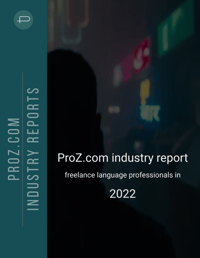An interpreting contract was cancelled because AI was implemented to LIVE translate & subtitle a news show where I was working.

Quotes from language professionals:
The impact that it has (other than the enquiries not being placed with a real translator) is that agencies appear to make more use of software, including AI, to judge a translator's work, assessing it, then, in a mechanical fashion, thus often incorrectly.
A human-machine-human loop
Quotes from language professionals:
It has a bad influence on style and choice of terminology.
Quotes from language professionals:Intelligence agencies use AI to scan the vast body of data that they need to follow. In the old days, translators were used to translate messages, technical articles, etc., for these agencies, but today there aren't enough translators, and there isn't enough money to pay them, to translate all the material that needs to be scanned. So in that sense, AI has affected the market. But the quantum increase in data has changed the market as well, forcing the need to develop AI.
On the other hand, between the ease of generating text with word processing, the means to circulate it on the Internet, and ever-more contact between countries, the world is increasingly flooded with words that are eligible for translation.
https://www.proz.com/post/2808386#2808386
Quotes from language professionals:
Potent search machines like Google condition more and more the choice of adequate terms. For example, some clients explicitly require the use of terms that have the highest rate of hits in Google Analytics even if they are not the best for describing and selling their products.
It could go either way. What I believe I am seeing as an effect of better AI tools in translation, is an increase in the number of jobs and shorter work cycles. And perhaps a tendency to lower tariffs for menial tasks. On the other hand, high quality, highly specialized tasks with a higher level of complexity, such as top-level subtitling (feature films etc.), and transcreation, remain in high demand and with good tariffs. I believe these types of tasks won't be replaced by AI any time soon.
I am a huge fan of Artificial Intelligence and its development. I believe that it is one important reason why my workload as a full-time translator has increased over the last two years. Especially because I chose to extend my services by including post-editing, which is a rapidly evolving area over the last year.
Most technology is focused on productivity and efficiency, helping translators do more output in less time. Support systems for job assignment, file transfer, and payments have all helped streamline the indirect work. I am leery of AI translation systems, and have many requests for PEMT work, but so far have not seen my workload change because of it. I generally avoid PEMT work because it pays less but is nearly as difficult and complex as straight translation.
This is an excerpt of the most recent ProZ.com industry report. To read the full report, you can go to https://www.proz.com/industry-report/
ProZ.com industry reports are periodic publications that take a look at trends, challenges, and opportunities in the language services industry, from the perspective of the freelance language professional. ProZ.com paying members enjoy immediate, full access to these reports.
Everyone is automating what they can. Automate your marketing by letting ProZ.com do the work of bringing new clients and collaborators to your profile-- just make sure to fill that profile with everything that shows what makes you different from the rest.
If you are not yet a ProZ.com member, you can start now, with special discounts on membership and training until December 15th. Find out more »



